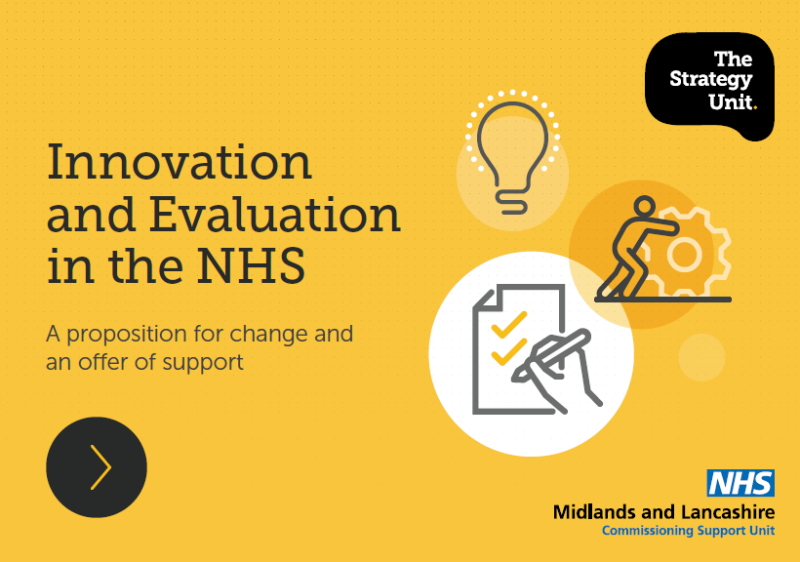Health and care services in England are labouring under a chronic state of stress – where for many organisations, ‘just about coping’ has become the new normal. There is a wide array of influencing factors, but the fundamental challenge can be represented as a mismatch between need and provision. Our ageing population has increasingly complex needs, which demand more from our services, more frequently. But these services are highly constrained – in health, providers have a six-figure staff vacancy rate and reported a combined deficit of close to a billion pounds last year. Meanwhile, real terms spending in adult social care has fallen. The NHS funding settlements announced over the summer are certainly not enough for us to assume that ‘more of the same’ is a viable response.
Our strategy must therefore rely on ‘doing things differently’ as well as ‘doing different things’. There is a need to enable and support innovation in its broadest sense – the creative process by which we respond to the challenges we face. It is problem, rather than product which should drive this process. So, while it could involve new technology, it could equally represent any new way of doing things that is built from a thought process that contests our current set of assumptions. It could range from an individual making a series of incremental changes to the way they deliver their role, to hundreds of professionals and citizens working together to radically transform a health and care system. As a minimum, we need to encourage staff at all levels to identify and articulate the problems they face and suggest solutions, rather than ‘looking upwards’ for good ideas. Better still if they have the skills (or at least the support) to work up and implement their ideas and hence begin to become ‘self-improving’.
But the prevailing conditions are harsh. People are typically operating at the limit of their capacity and there isn’t the time, money or energy to try new things, so the spark of a promising idea can fizzle out. And an idea alone isn’t enough – it is the starting point of a potential change process that individuals, organisations and even systems may be poorly equipped to progress through. Existing evidence can be underused or misapplied, implementation can proceed in a manner which is ineffective or does not support ongoing learning and inappropriate decisions can be made as to ongoing support for an innovation. This is made harder by a culture in which staff frequently don’t have ‘permission to try’ or ‘permission to fail and learn’. This supports a tendency towards assertion and advocacy, rather than careful and objective measurement of possible effects.
So, it isn’t enough to just try new things. Evaluation is an essential part of the innovation process – to evidence whether innovations have been successful or not, to identify the underlying factors and, most importantly, to learn from them. To be effective, it requires a set of core disciplines. For many, this will require a change in early approach, spending additional time at the design stage thinking through exactly how an intervention will achieve its intended outcomes and setting appropriate measures. Some will need to take far greater account of local context and emerging lessons when it comes to proceeding with implementation. For others, it will require a more rigorous focus on ‘following the evidence’ when it comes to decisions to scale up or stop an innovation.
Our belief is that there is far more that we can do to support these disciplines in health and care services, at individual, organisation and system level, both by acting as an expert partner and by building capability within existing staff. So, we have developed an offer of support – our innovation and evaluation proposition. This sets out the help we can provide at each stage of the innovation process in more detail, with context provided by key insights and a selection of case studies and videos. Furthermore, our innovation and evaluation microsite includes a wide range of supporting materials, such as details of our training offer, user-friendly tools and templates to help staff work through the innovation process, as well as an offer of advisory support. We want this to be the starting point of a change process, and one for which there is an increasing sense of urgency – where we move from seeing effective innovation and evaluation as a ‘nice to have’, to their being the core mechanism by which we address the challenges facing health and care services today.
